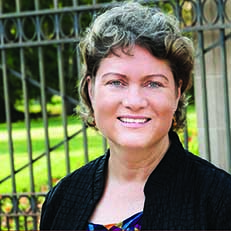BLOOMINGTON, Ind. - When humanitarian crises strike others, humans tend to be generous with their support.
But giving ineffectively can make your gift less useful and erode your trust in charities over the long term. That’s not healthy for the charitable sector or the people it supports.
Here are some tips on finding and supporting charities involved in Ukraine humanitarian relief:
- Give with your head as well as your heart. Impulse giving may cause you to give money too quickly, and even get scammed. Always do some research. Independently verify crowdfunding and social media fundraising campaigns. Check the names of organizations soliciting your help with the Internal Revenue Service list of registered charities – scam artists often use a name close to the name of a real charity.
- The more you read, the more informed your giving will be. Follow the news to understand the situation on the ground. In Ukraine, most refugees are heading toward the West, so that is where needs may be greatest. Yet many humanitarian efforts involving US charities are currently located in the East, where civil war has been ongoing since the Russian invasion of Crimea in 2014. So consider instead Fundacja Ocalenie (The Rescue Fund), based in Poland, which has a very good track record with refugee assistance.
- Give to charities with a track record in eastern Europe. They will have already built the local relationships, trust, and infrastructure, so will be more resilient than pop-up charities. The Ukrainian Red Cross, supported by the International Committee of the Red Cross, has a long in-country track record.
- Always prioritize cash over goods, and unrestricted cash gifts over restricted gifts.
- Use charity rating sites carefully. Most still rely on outdated assumptions that charities with the lowest “overhead” (non-programmatic costs) are the most efficient. Research has proven this to be untrue. A few, such as Candid/Guidestar, have started to evaluate charities on the basis of broader performance metrics such as transparency, good governance practices, and outcomes.
- Consider supporting advocacy and independent media organizations as well as direct relief organizations. Some, such as Zaborona and the Kyiv Independent, are working to address Russian disinformation campaigns that distort the political situation.
- Ask the experts you know. A friend of mine from that part of the world gave me the names of Ukrainian organizations vetted by locals. One of these, Razom for Ukraine, has a Gold Star rating on Candid.
Media Contact
Tracey Theriault, Director of Marketing and Communications
Paul H. O’Neill School of Public and Environmental Affairs | Indiana University
onnews@iu.edu
About the O’Neill School of Public and Environmental Affairs
The O’Neill School is a world leader in public and environmental affairs and is the largest school of public administration and public policy in the United States. In the 2022 "Best Graduate Public Affairs Programs" by U.S. News & World Report, the O'Neill School is one of the top-ranked programs in the country. Five of its specialty programs are ranked in the top-five listings, including top-ranked concentrations in environmental policy and management; nonprofit management; and public finance.


